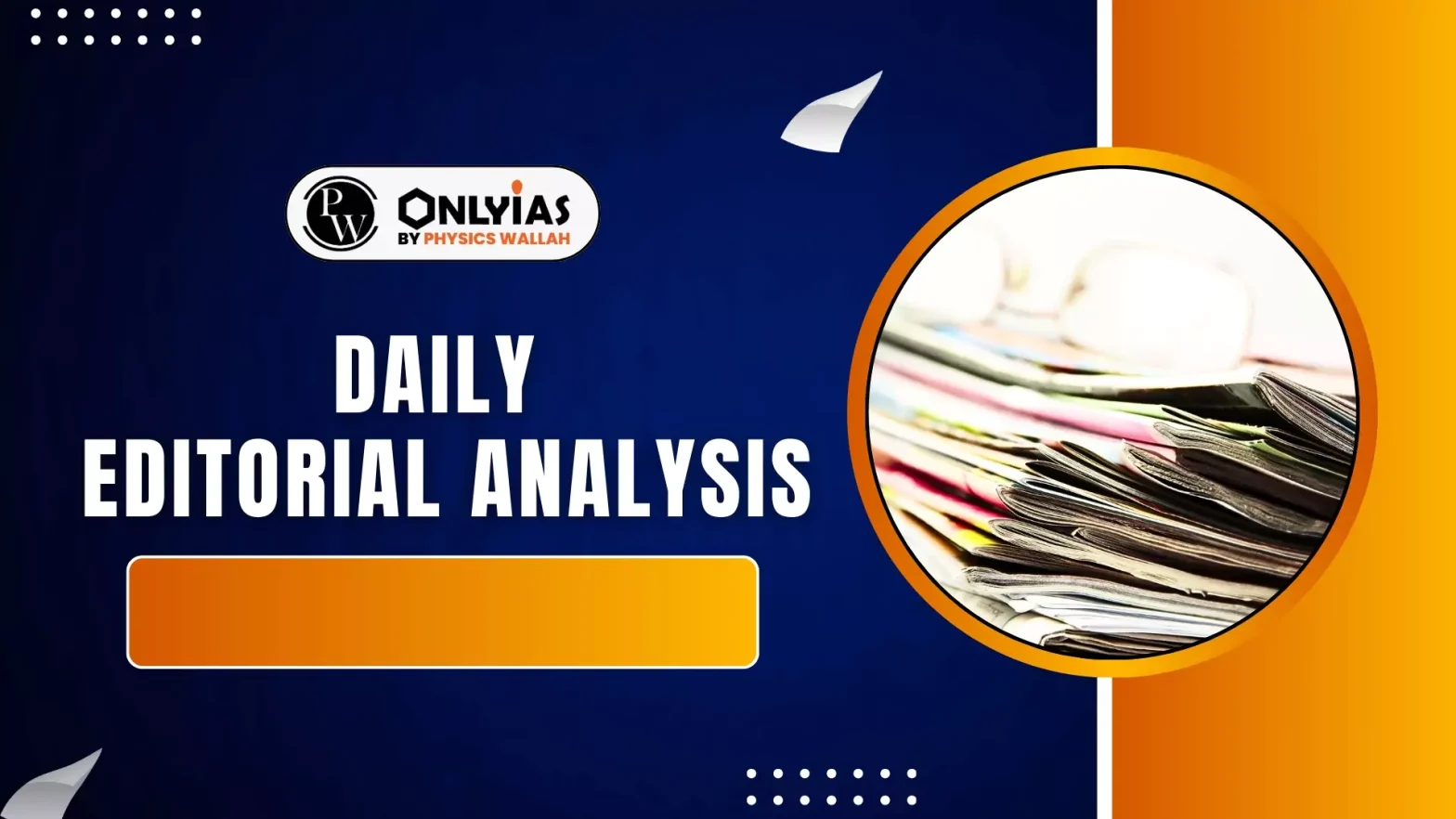The Supreme Court’s April 2025 judgment on the limited powers of Governors offered much-needed clarity on a contentious issue of federalism, but the Union government’s subsequent actions have cast doubt on its intent to uphold this constitutional balance.
Supreme Court Clarifies Governor’s Powers
- Judicial Verdict: On April 8, 2025, the Supreme Court ruled that withholding assent to 10 Bills by the Tamil Nadu Governor was “illegal” and “erroneous”.
- Clarifying Constitutional Procedure: The Court outlined constitutional procedures for Governors and the President when State Bills are presented for assent.
- No Indefinite Delays Permissible: Though the Constitution lacks a fixed timeline, the judgment reinforced that indefinite delays are unconstitutional.
Missed Opportunity for Closure
- Missed Opportunity for Federal Clarity: The Court’s judgment could have resolved longstanding tensions between the Centre and States over the arbitrary role of Governors.
- Centre’s Evasive Response: Instead of acting on the ruling, the Centre filed a Presidential Reference under Article 143, reopening already settled issues.
- Centralisation Through Governors: This move is seen as an attempt to retain or expand central control through Governor-appointed positions.
| PWONLYIAS Extra Edge:
Presidential Reference – Article 143
- Presidential Reference Power: President can seek the Supreme Court’s opinion on legal/constitutional matters.
- Types of References: Two types of references: Pre-constitutional and Post-constitutional issues.
- Nature of Supreme Court’s Advice: Supreme Court’s advice is not binding, but holds moral weight.
- India-Specific Power: Unique to India; unlike the US, the Indian President has this power.
- Recent Invocation: Recently invoked regarding the Tamil Nadu Governor’s delay in giving assent to Bills.
Governor’s Powers under Article 200
- Governor’s Powers: Governor can Assent to Bill, Withhold Assent, Return for Reconsideration.
- Reservation of Bills: Can also reserve Bills for President’s assent under Article 201.
- Pocket Veto: Governor in Tamil Nadu sat on 10 Bills without action—a practice called Pocket Veto (silent delay).
- Constitutional Violation: This delay violates constitutional spirit and undermines legislative supremacy.
Supreme Court’s Landmark Verdict
- Imposed Time Limits: SC imposed time limits on Governor’s action despite no constitutional provision.
- 3-Month Deadline: Governor must act (assent/withhold/return) within 3 months.
- 1-Month Assent: Must assent within 1 month if the legislature re-passes the Bill.
- 3-Month Reservation: Has 3 months to reserve the Bill for President under Article 201.
- Use of Article 142: SC used Article 142 to enforce justice — a historic first.
Use of Article 142 – Controversial Move
- Article 142 Power: Article 142 allows the SC to deliver ‘complete justice’.
- Bypassing Governor: SC made Bills enforceable without Governor’s formal assent for the first time in Indian history.
- Criticism: This move bypassed the Governor’s role, drawing criticism as judicial overreach or a ‘nuclear missile’.
- Balance of Power: Raises concerns about the balance of power between the judiciary and executive.
|
Role of Governors in Federalism
- Appointment and Powers of Governors: Governors are appointed by the Centre, but their powers are not absolute.
- Role Within Constitutional Limits: Their role is to act within constitutional limits, not to undermine elected State Assemblies.
- Judicial and Historical Alignment: The Supreme Court’s verdict aligns with past judgments, committee reports, and Constituent Assembly debates, supporting limited and well-defined roles for Governors.
Political and Legal Implications
- Centre’s Use of Presidential Reference: Instead of using the Court’s clear judgment for reform, the Centre’s Presidential Reference may be a political tactic.
- Legal Expert Opinion: Experts note that a Presidential opinion does not override a Court’s judgment.
- Proper Legal Procedure: The appropriate route for clarification would have been a review petition, not a presidential reference.
The Path Ahead
- Acceptance of Supreme Court Framework: The Centre should accept the Supreme Court’s framework and use it to strengthen cooperative federalism.
- Constitutional Amendments: If needed, constitutional amendments could formalize these clarifications.
- Consensus Building: A meeting of Chief Ministers and political leaders may help build consensus on remaining issues related to the Governor’s roles.
Conclusion
Rather than challenging settled principles through a Presidential Reference, the Centre should respect the Court’s judgment, strengthen cooperative federalism, and engage stakeholders to ensure constitutional roles are not subverted by political motives.
![]() 17 May 2025
17 May 2025

